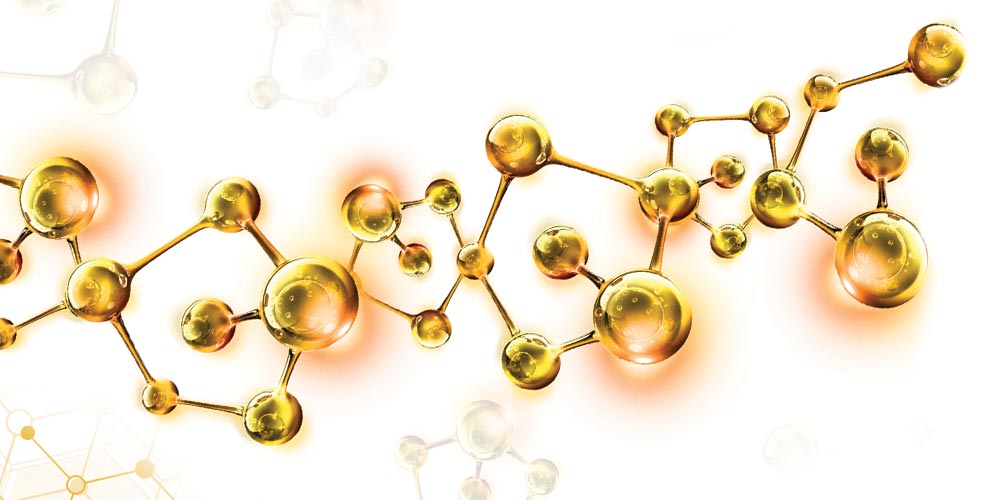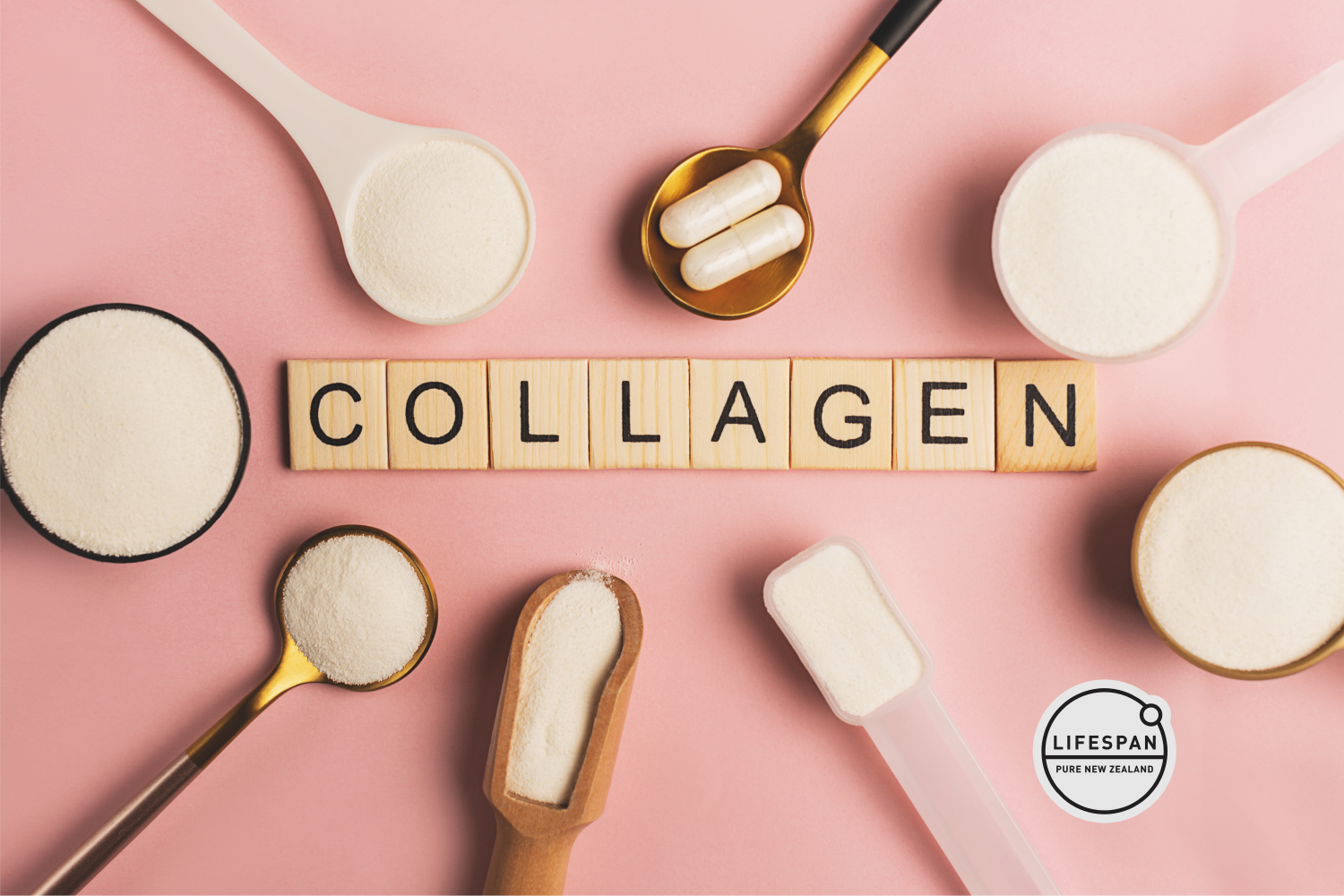
At Lifespan, we specialise in producing premium Marine Collagen from the pristine coastal waters of New Zealand.
Our advanced hydrolysis process ensures the highest quality of sustainably sourced fish collagen, which forms the core of our renowned RevitaCOL® Marine Collagen Powder. This vital ingredient is integral to our collagen supplements, celebrated for enhancing skin, hair, nails, and joint health. Our commitment to purity and sustainability in every capsule and skincare product we offer brings the natural benefits of marine collagen directly to you.
Recent posts

About the Author
Ben Winters, a prominent member of the Lifespan team, plays a crucial role in the development of high-quality marine collagen supplements. His extensive expertise spans from sustainable sourcing in New Zealand's pure waters to innovative processing techniques. Ben's hands-on involvement ensures the exceptional quality of Lifespan's RevitaCOL® Marine Collagen, renowned for its beneficial properties for skin, hair, nails, and joints. His deep engagement in every step of the process, from sourcing to production, not only signifies his dedication to excellence but also equips him with valuable insights. These insights are eloquently shared in his blog posts, making them a treasure trove of information for those seeking effective natural health and wellness solutions.

Marine Collagen vs. Bovine Collagen: Understanding the Differences and Benefits
By Ben Winters
Collagen is a protein found in the human body, which is a major component of the connective tissues, and is important for maintaining overall health, in particular healthy joints, ligaments, hair and skin.
A unique ability to provide strength and elasticity is what sets collagen apart as an essential protein in the human body. It is the backbone of our skin, tendons, bones, and connective tissues, acting like the glue that holds everything together.
For skin health, collagen provides flexibility which contributes to a youthful appearance, and helps to reduce sagging and the formation of wrinkles.
Collagen provides flexibility through its unique structure and composition. It is a protein made up from amino acids, which form long chains called fibrils. These fibrils are incredibly strong and provide structural support to tissues.
The collagen fibres are interwoven with elastin in the connective tissues. Elastin is another protein that gives tissues the ability to stretch and bounce back. While collagen provides tensile strength (resistance to being pulled apart), elastin allows tissues to return to their original shape after stretching or contracting.
Collagen has a great capacity to bind water molecules, which contributes to the hydration and resilience of the skin and other tissues. This hydration is crucial for maintaining tissue flexibility and preventing rigidity.
In joints, collagen contributes to the flexibility and smooth functioning of cartilage by providing a framework that retains water and nutrients, allowing the cartilage to function as a cushion and provide smooth, flexible movement between bones.
Collagen's flexibility is a result of its unique molecular structure, its ability to interact with other proteins like elastin, its water-binding capacity, and the specific arrangement of collagen fibres in different tissues. These properties make collagen indispensable not just for structural support, but also for the flexibility and resilience of various body tissues.
Therefore, maintaining adequate collagen levels is an important aspect of overall physical well-being, highlighting its importance in our daily health regimen.
As we age, the collagen levels in our body undergo a noticeable change, predominantly characterised by a gradual decline.
This natural ageing process starts as early as our mid-20s, where collagen production decreases approximately by 1% each year. The collagen fibres themselves also change - they become thicker and more fragmented, leading to a less effective and cohesive structural network.
This reduction in both quantity and quality of collagen manifests visibly and functionally; the skin loses its firmness and elasticity, leading to the formation of wrinkles and sagging. Internally, the decrease in collagen affects joint mobility, as the cartilage weakens, and can contribute to the weakening of bone density.
The overall impact of diminished collagen levels is a fundamental aspect of the ageing process, affecting both our appearance and bodily functions, underscoring the importance of collagen in maintaining youthfulness and physical health.
We can add collagen supplements to our diet to counteract this natural decline of collagen production in our bodies as we age.
These supplements aim to replenish collagen levels, potentially helping to improve skin elasticity and reduce the appearance of ageing, such as wrinkles and sagging skin.
Beyond skin health, collagen supplements are also useful for their potential benefits in strengthening joints, bones, and connective tissue, improving overall joint mobility and comfort. Additionally, some people use collagen for its potential benefits in gut health and in supporting the strength and growth of hair and nails.
By incorporating collagen supplements into our diet, we are helping to enhance our body's structural integrity and maintain a youthful, healthy appearance and function.
There are two main types of collagen supplements available, marine collagen and bovine collagen.
When comparing bovine and marine collagen, each has its unique advantages, but marine collagen stands out for having several specific benefits. Extracted from fish skin and scales, marine collagen is primarily composed of Type I collagen, which closely resembles the collagen present in human skin.
This similarity enhances its bioavailability, meaning the body can absorb and utilise it more efficiently than bovine collagen. This high absorption rate makes marine collagen particularly effective in promoting skin health, including improving skin hydration, elasticity, and reducing the appearance of fine lines and wrinkles.
Additionally, being a fish-based product, it's an ideal choice for pescatarians or those who avoid beef products for dietary or ethical reasons.
Bovine collagen, derived from cows, offers a unique blend of benefits due to its rich content of Type I and III collagen. This combination supports skin health, bone, joint, and gut health.
To compare the benefits, bovine collagen offers a broader spectrum of collagen types (I and III), however marine collagen offers superior bioavailability, making it more easily absorbed by the human body.
This higher bioavailability is attributed to its smaller particle size and lower molecular weight. Marine collagen, primarily composed of Type I collagen, has a molecular structure that closely resembles the collagen found in human skin, which enhances its absorption and effectiveness.
The smaller peptides in marine collagen are more readily absorbed through the intestinal barrier and into the bloodstream, making them more efficient in replenishing the body's collagen stores.
This factor is a key reason why many people prefer marine collagen, especially for skin health benefits like improving elasticity, hydration, and reducing the appearance of fine lines and wrinkles.
As our bodies naturally produce less collagen over time the integration of collagen supplements into our diets becomes increasingly important.
Choosing between marine and bovine collagen involves considering personal dietary preferences, ethical considerations, and specific health objectives.
While bovine collagen is valued for its broad spectrum of benefits, catering to overall wellness, marine collagen is especially sought after for its targeted impact on skin health.
Ultimately, collagen supplements, particularly marine collagen, become very useful as we get older, to help preserve the health and flexibility of our joints, ligaments, connective tissue, and also to maintain the elasticity of our skin.


